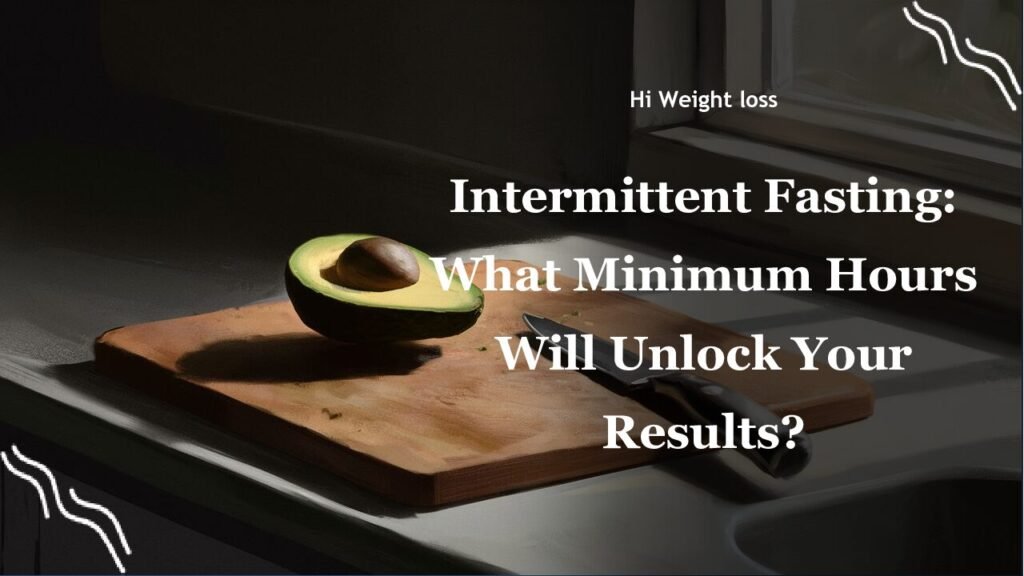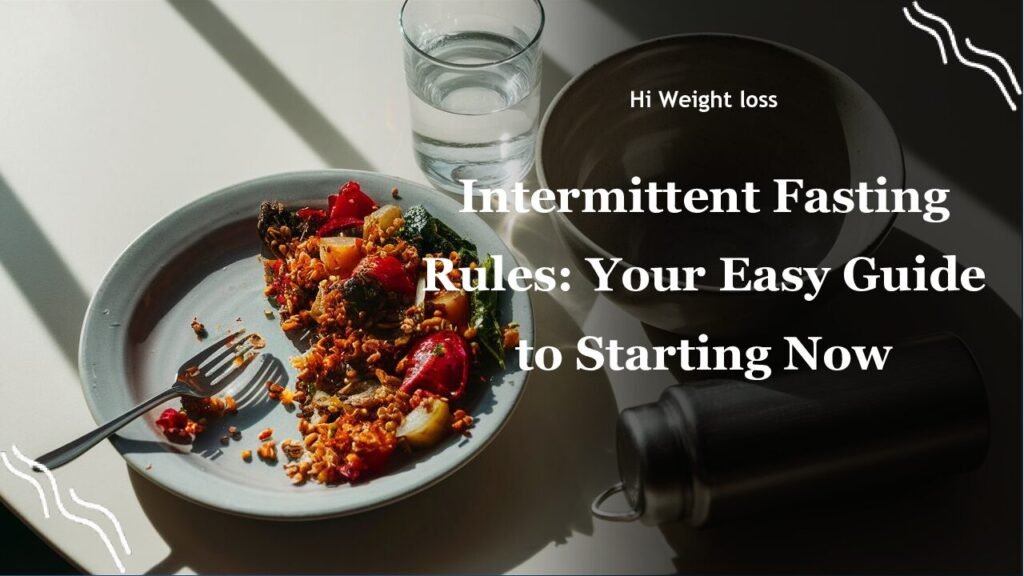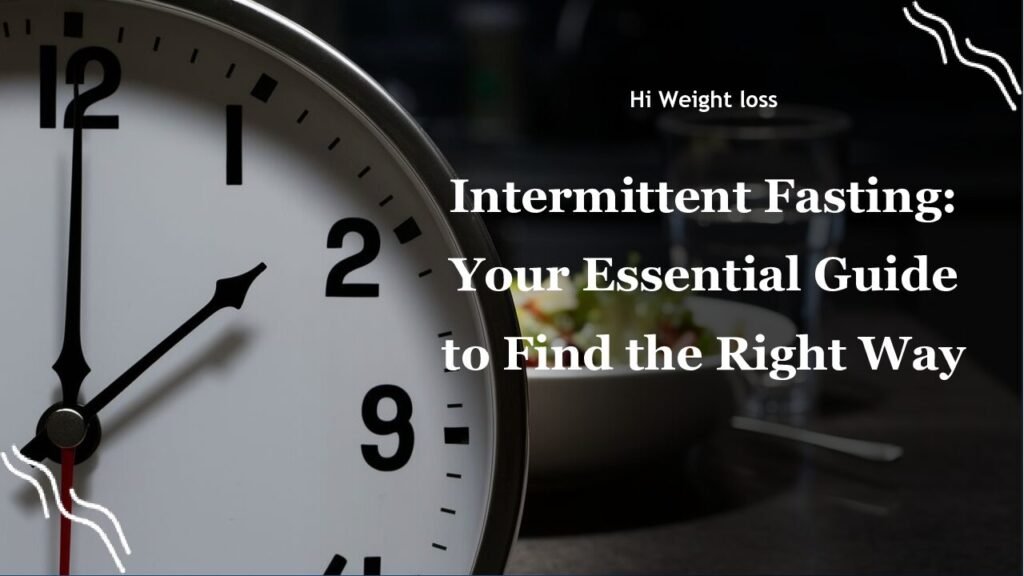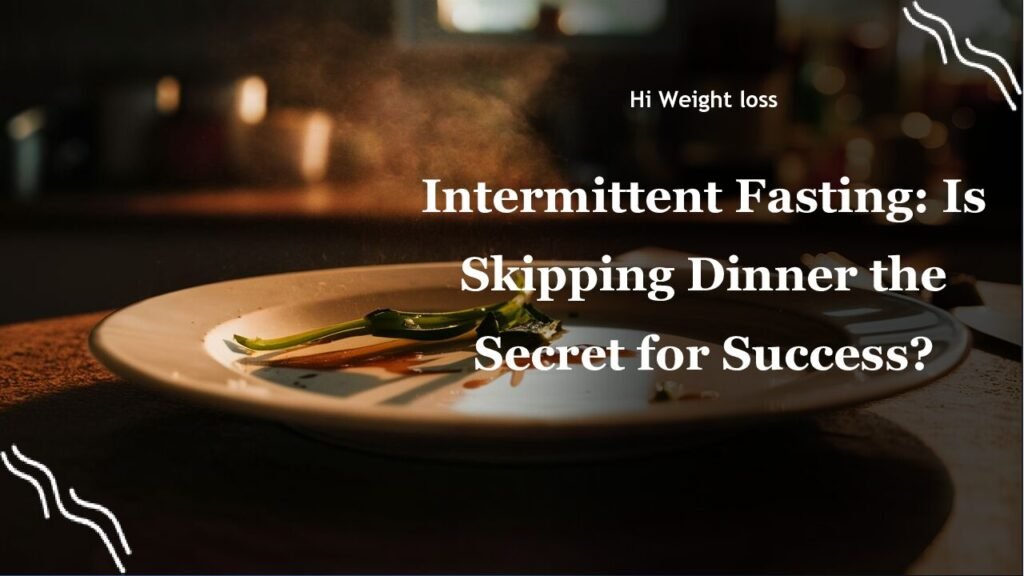“`
Are you curious about intermittent fasting but unsure how long you need to fast to see results? Many people wonder, what is the *minimum hours for intermittent fasting to work*, and if you’re one of them, you’re in the right place. You might be trying to improve your blood sugar, lose weight, or just enhance your overall health, intermittent fasting can be a valuable tool, but it’s crucial to know the baseline for seeing any benefits. This post will explore the science behind fasting durations, personal experiences, and practical advice to help you get the most out of your fasting efforts. Let’s dive in!
What Is the Minimum Hours for Intermittent Fasting to Work?
Understanding the Basics of Intermittent Fasting
Intermittent fasting isn’t about what you eat, but rather *when* you eat. You cycle between periods of eating and voluntary fasting on a regular schedule. Many different methods exist, each with their own fasting window. It’s crucial to start with the basics.
I remember when I first started looking into intermittent fasting; the sheer number of options felt overwhelming. It seemed everyone had a different view about what was “best.” It was like navigating a maze, but understanding the fundamental principles makes it much easier to navigate.
The 12-Hour Fast: A Gentle Introduction
According to experts, a 12-hour fast is generally the minimum needed to start seeing some benefits. This is often the easiest starting point for beginners. This can help with improved blood sugar regulation, giving your digestive system a break, and reduced exposure to gut-associated toxins such as endotoxin.
My friend Sarah started with the 12-hour method because it fit her lifestyle the easiest. She simply stopped eating after dinner and did not have breakfast until the next morning. The good news is, she did notice improvements in how she felt, with more stable energy levels and fewer mid-afternoon crashes.
The 14 to 18-Hour Fast: Stepping Up for Weight Loss
For more pronounced weight loss and metabolic benefits, a 14- to 18-hour fasting window is often recommended. This duration can help shift your body into a fat-burning state called ketosis.
A longer fasting window can also help increase your body’s sensitivity to insulin, meaning your body is more efficient at processing carbohydrates. I personally found that moving from a 12 hour fast to a 16 hour one was what really helped me break through a weight loss plateau. The benefits were noticeable in just a few weeks. This duration is not necessarily easy, but the longer you fast, the more significant the benefits.
Key Factors Influencing Intermittent Fasting Duration
The “best” duration for intermittent fasting really depends on your individual goals, lifestyle, and tolerance levels. For example, someone who’s very active may need to be more thoughtful about adjusting their fasting window than someone with a more sedentary lifestyle.
The key is to experiment and find what works best for you. Be patient, listen to your body, and don’t be afraid to adjust your fasting window as needed. What worked for my friend Sarah with her 12 hour fast, might not work for you, or me with my 16 hour fast.
Benefits of Different Fasting Durations
Let’s summarize the benefits of different fasting windows:
| Fasting Duration | Primary Benefits |
|---|---|
| 12-Hour Fast | Improved blood sugar regulation, reduced exposure to gut-associated toxins. |
| 14- to 18-Hour Fast | More effective for weight loss, shifts body into ketosis, enhanced insulin sensitivity. |
As you can see, each timeframe provides distinct advantages. You should choose which timeframe to start with based on your personal goals. But, what about those who are still new to the process? How can you make intermittent fasting work for you?
Practical Tips for Starting Intermittent Fasting
Starting any new regimen can be challenging. Here are some practical tips to help you get started with intermittent fasting:
- **Start Gradually**: Don’t immediately jump into a 16-hour fast. Begin with a 12-hour window and slowly increase it.
- **Stay Hydrated**: Drink plenty of water, even during your fasting window. This can help manage hunger.
- **Listen to Your Body**: Pay attention to how you feel. If you experience extreme hunger, dizziness, or other negative symptoms, adjust your fasting duration accordingly.
- **Plan Your Meals**: Make sure your eating periods are filled with nutrient-dense meals to maximize your health benefits.
These tips are based on my experience and that of those I’ve spoken with. It’s about finding the right balance that works for you, and this usually involves some trial and error.
Remember, the goal is to make fasting a sustainable lifestyle, not a punishment. So be kind to yourself as you explore this technique.

The Importance of Consistency and Flexibility
While consistency is important in fasting, it’s also crucial to allow for flexibility. Life happens, and sometimes you may need to adjust your fasting schedule, and that is perfectly fine. It’s better to remain flexible while being consistent overall.
I’ve had times where my travel schedule disrupted my typical routine, so I had to modify my fasting window for a few days. The important part was that I didn’t let it throw me completely off track, I simply adjusted and continued on my journey.
Remember that it’s not about being perfect. It’s about progress. Finding the sweet spot that works with your life is what it is all about. And, over time, you’ll get better at understanding what you need.
Conclusion
So, what is the minimum hours for intermittent fasting to work? Generally, a *12-hour fast* is the starting point for some health benefits, such as improved blood sugar regulation. However, a *14 to 18-hour fast* is more effective for weight loss due to the process of ketosis and enhanced insulin sensitivity. Ultimately, the best duration depends on individual goals and lifestyle. Remember to start slowly, stay hydrated, listen to your body, and find a routine that fits your unique needs. Consistency and flexibility are also key to making intermittent fasting a sustainable and rewarding part of your life. Consider exploring some of the *different fasting* techniques and see what works best for you. It’s a journey, not a sprint, so enjoy it.
Now, are you ready to try intermittent fasting? Take the first step and see how it transforms your life.
FAQ
What is the shortest fasting period for weight loss?
While some benefits can be seen with a 12-hour fast, a 14- to 18-hour fast is generally considered more effective for weight loss. This is because of the body shifting into a state of ketosis where it primarily uses fat for energy. You can read more about the minimum hours you need to fast to receive the desired health benefits.
Can I still exercise while intermittent fasting?
Yes, exercise is generally safe and can even be beneficial during intermittent fasting. However, it is essential to listen to your body and not overdo it. If you feel overly fatigued or dizzy, scale back your workout and ensure that you are hydrated.
What can I drink during my fasting period?
During your fasting period, you can drink water, black coffee, and unsweetened tea. These will help you stay hydrated without consuming extra calories that break your fast. The key is to avoid anything with calories or artificial sweeteners during your fasting period.
Is intermittent fasting safe for everyone?
Intermittent fasting is not suitable for everyone. It’s crucial to consult a healthcare provider before beginning, especially if you have any underlying health conditions such as diabetes or a history of eating disorders. Also, women who are pregnant or breastfeeding should avoid intermittent fasting. Remember that the *best duration for intermittent fasting* is one that is safe for you.
How do I know if intermittent fasting is working for me?
You will likely notice some of the following benefits of *effective intermittent fasting* if it is working for you: increased energy, improved focus, better sleep, gradual weight loss, and overall improved health. You can track your progress by keeping a journal or taking periodic measurements. If you start noticing these beneficial changes, then it is likely that intermittent fasting is working for you!
“`



